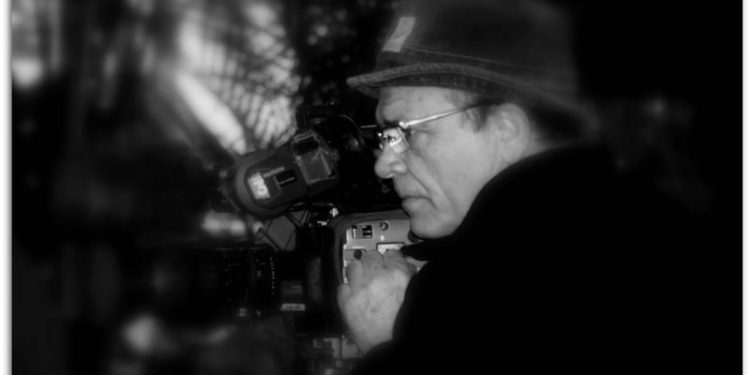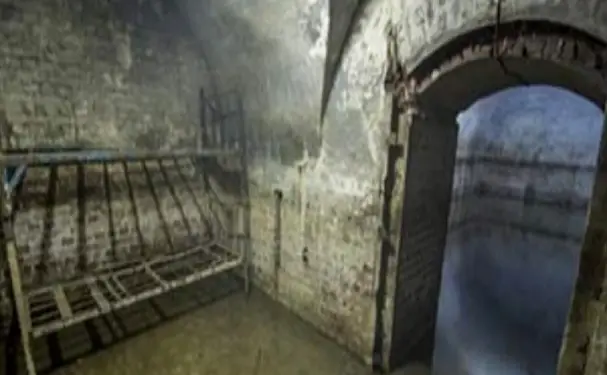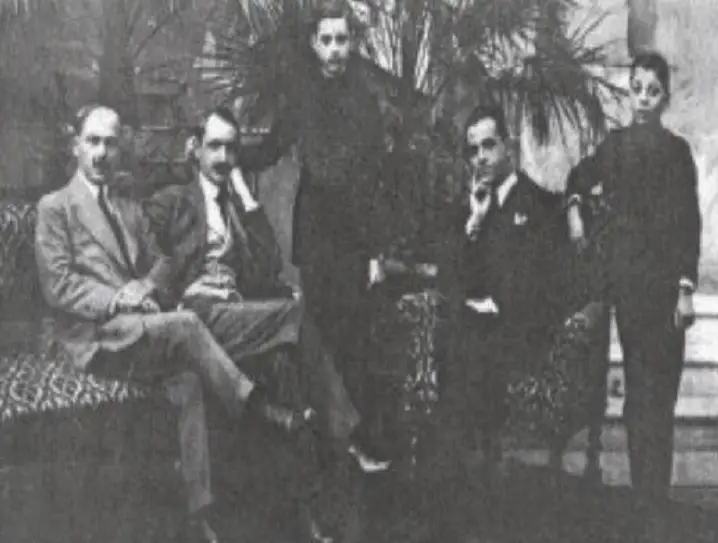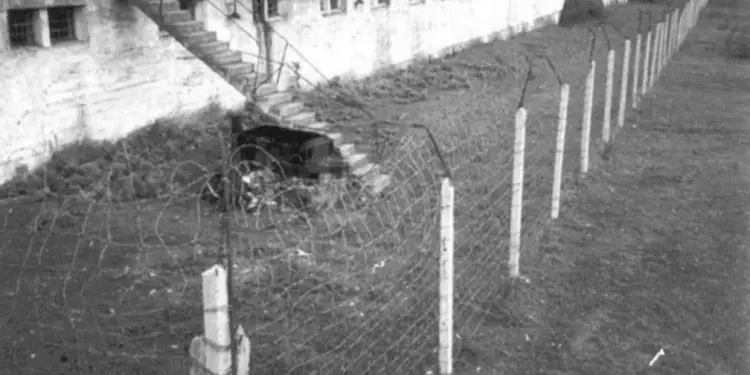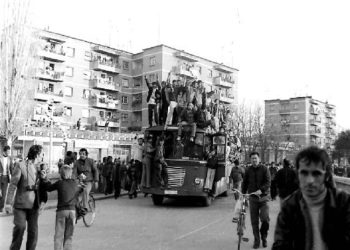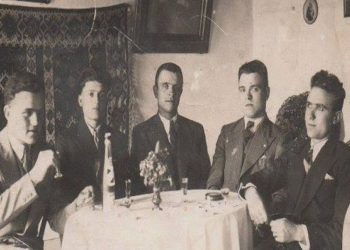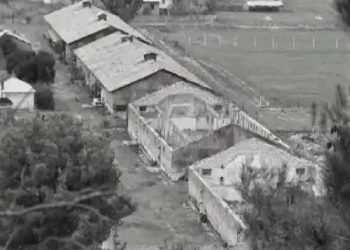By Vasil Qesari
Part fifteen
Memorie.al/ The overthrow of the great totalitarian edifice in Albania would leave behind, not only the change of the system, accompanied by lots of hopes, mirages and cries of happiness but, unfortunately, also many wounds, dramas, victims, dust, milk and disappointments from the most different. Ten years and more after that event, which deeply shook society, completely overturning many previous codes, rules and concepts, people still continue to ask themselves such questions as: What really happened in society Albanian, during the last 50 years of the dictatorship? How was it possible that the system managed to warp everything? Why did people accept it? What was the totalitarian logic of the transformation of society and the individual? How were the structures of totalitarian mechanisms conceived and functioning: propaganda, secret police and the exercise of the ideology of terror? How did it happen that among all the communist countries of Eastern Europe, Albania was considered an exception or a special case? Why did Enver Hoxha remain blindly, fanatically loyal to Stalin until the end, turning the country into a prison where violence, fear and purges continued until the end of the 80s? Why was the country so insanely isolated, locking people up between bunkers and barbed wire? Why, then, did all the above phenomena happen…?! The book “Post-scriptum for Dictatorship” does not claim to provide definitive answers to the above questions, or the complexity of the reasons that brought and maintained the totalitarian power in Albania. Nor is it a complete, deep and comprehensive fresco of the life and suffering that people experienced during that system. Its author, perhaps, has the merit that together with the retrospective view of the totalitarian period as well as the zeal of a passionate analyst, he has tried to turn his head back once again, to give not only his personal memories and opinions, but also to return once again to the vision of that era with the simple philosophy of preserving the Memory and supporting the Appeal to never forget the well-known maxim, that…the corpse’s nails and hair continue to grow even after death! Ten years or more after the great revolution, the book in question has current value and we hope it will be appreciated by the reader because, as an Albanian researcher also says… the greatest evil that can happen to a people comes when he fails to analyze his own past. An amnesic people are forced to be constantly neuropathic and repeat their painful experiences…!
Continues from last issue
REQUIEM FOR KUDRET KOKOSHIN
… Kudret Kokoshi, lived together with his wife, in the same building where I lived. They had rented a small room, on the first floor, in a shared apartment with a fisherman’s family. It had only been a few years since he had been released from the long prison of over 20 years and managed to survive thanks to a very small salary of the woman, who worked from dawn to dusk in the olive groves of the “Vlora” Agricultural Enterprise. .
In order to supplement the extremely poor family “budget”, Kudreti managed to secure some modest income through the literary translations he made from Albanian to Italian, for the account of a publishing house in Tirana.
The life story of Kudret Kokoshi was painful and tragic, just like that of all other “bourgeois” intellectuals. He came from a patriotic family from Vlonia and he had finished his higher studies in Literature in Italy. During the years of the Anti-Fascist War, Kudreti strongly opposed the foreign invasion and was also elected in charge of the Ballistic Youth of Vlonia.
This was the reason why, starting after the liberation, he was arrested and sentenced to be shot, a sentence which was later turned into a long imprisonment of 25 years. But, thankfully, God had stood by him, had not let him die and, from a long ordeal full of vicissitudes, he had been able to escape alive. He was put in prison as a young man, and he came out old and with a collection of diseases.
I remember that, when Kudret Kokoshi, after many vicissitudes, was able to put his head in a small room 3 x 3 m., many communist militants of the palace complained to the People’s Council of the Neighborhood, the Democratic Front and elsewhere, asking for him to be exiled from there and exiled somewhere far away, in some lost village. How you escaped from that hatred and hysteria, only God knows…!
Almost none of the residents of the palace spoke to the “enemy of the people”, Kudret Kokoshi. You never even say ‘Good morning’ to anyone. He was constantly locked inside, rarely coming out of his small room. Thus, even though in a ‘free’ state, his life continued to be the same, that is, like in prison.
At home, no one entered. With the exception of very few people in the family, as well as A. Meçaj, a former teacher dismissed from his job because of his ‘bad biography’, which was said to write very popular poems. Undoubtedly, the Security people were constantly monitoring and eavesdropping on him like a hyena…!
Kudreti lived one floor below the apartment where I lived. A dim light was constantly on in his room. All day until late at night, he translated and translated. Across his barred window lived a man, a heart, a soul. I loved seeing him often, especially on cold winter days, when he would come out in front of the palace steps to light the brazier. He set fire to some chips, threw coal on them and waited alone for it to turn into embers.
The cold wind blowing from the Koçi Pass cut like a razor. Dressed in a thin, old jacket, tightly wrapped in a scarf, he stood there for a good half hour. Always, with teary eyes from the smoke, rubbing his hands and clapping his feet, so as not to freeze from the cold.
I often saw him like that, with his small stature, emaciated by suffering. With a smooth and wrinkled face, where only two colorful and lively eyes showed that he was still alive and had not died. The embers on the brazier were made and it was closed back inside. In his ‘freedom’ from being a prisoner.
He was translating until late. He sat at the table by the window. Often times, I used the light of the candle, not only to save electricity, but also not to disturb the sleep of my wife, who had to get up before dawn. With his body wrapped in blankets, every now and then he would interrupt his writing and start a dry, stifling cough, the result of an old chronic bronchitis, which was aggravated by the cold air of the room, which could never be warmed by that handful of ashes over the brazier.
Often, when I chanced to meet him outside, always bent over the smoking brazier, I would stop and, careful not to be seen by the neighbors, exchange words with the two. It was, precisely during those brief meetings that I got to know the Poet. Because, Kudret Kokoshi, he was and was born to be a poet. His every word had a strange gripping and suggestive power.
Almost magical…! Sin! That small, weak, fragile man with the noble features of a cultured, polite and very humane gentleman, in other circumstances, could have been one of the most prominent aesthetes or poets of Albania…! After some time, when I told him that I had also studied Literature, I felt that his characteristic shyness completely left him.
His face smiled and was filled with light. He told me that, two people who have books in their hearts and adore literature can understand each other very well. He told me about his years of study in Rome. For the great Italian poets: Dante, Petrarch, Ugo Foscolo and many others. For his first publications in the then Albanian press. About the poems you wrote in prison. For the poem ‘Toto Bolena’, which was very close to your heart, and which you had dedicated to the warrior and the outstanding commander of the War of Vlora (1920)?
Another time, he tearfully recited a poem to me, which he considered his “masterpiece” and which he had dedicated to his mother. The one that you had brought to that world and that you had followed all your life, step by step through prisons. Traveling through the years with suitcases in hand. Riding on trucks, for hours and days. To her, who you had as a beautiful young ewe and who, when you came out of prison, you found her a bent and withered old woman from years, poverty and suffering…!
I often asked him about the intellectuals of the 1930s and, in particular, about some well-known journalists of that time. He told me that most of them had been shot without trial by the partisan Special Forces, allegedly as collaborators.
(He was talking to me about Branko Merxhan and Vangjel Koca, the idealists and founders of neo-Albanianism. About Nebil Çika, an extremely skilled, intelligent, productive journalist with a sharp pen. About Aleks Mavraq – the ubiquitous chronicler of the Royal Court. Vasfi Samim, the actor of cinema formed in Istanbul, journalist and poet, etc.)
But all those names belonged to a very distant past. Times forgotten by everyone, but not by Kudret. (O God, how many comrades, friends and relatives were wasted in prisons and their graves were not known?!). Among them, Kudret Kokoshi, had remained alive. And, moreover, you had escaped exile in your old age.
Thus, in appearance, he seemed to be among the lucky ones. So that you had escaped death. That he had a wife. Ever since you were alive, you had a room to put your head in. That he could make a living by translating, even though he saw the copyright in the ‘anonymities’. What he was doing was a paradox…! (Poet of anti-dictatorship translated pro-dictatorship poets).
Erudite, poet and intellectual Kudret Kokoshi, died at the Dawn of Freedom. Then when, tired and depressed, we all had lost hope that one day, she could come. He died in peace; right after the Dictator’s monument was dragged through the streets of the Albanian capital.
When I found out that he was dying, I went and met him as he was getting ready to go to his eternal rest where his dear mother was. Lying on the bed, between the sheets of blinding whiteness, with a pale face and ever-bright eyes, he had assumed the appearance of a Saint.
I sat next to him and talked to him. I showed him a bunch of free poems. Published without fear in the new newspaper “Rilindja Demokratike”. No censorship…! You didn’t have the strength to say a word to me. I only saw that, from his gray-blue eyes, a few drops of tears began to flow.
I was convinced that this time they were tears of joy and not pain…! His cause, his ideal, his spirit, had triumphed over Evil. The poet, with his Ideal, had defeated the Dictatorship. The martyred dream of Kudret Kokoshi has come true. Finally, his beloved homeland, Albania, which was separated once and for all from the Liquid Totalitarian Night…!
(In 1973, in a completely random conversation with Shefqet Musaraj, in the Cold Water of Vlora, I took advantage of the fact that I happened to be alone with him for a few moments, I took the courage and asked him about the circumstances of the death of the journalist, Nebil Çika Here’s what he told me, briefly: “Nebili was shot the day after the liberation of Tirana. As far as I know, he was hiding with many other intellectuals in the basement of the Hotel “International”.
On November 18, a team of partisans with a list in their hands, checked and called and took out from there, the people whose names were on it. Nebili could have remained silent and not come alive. But, he was convinced that he had done nothing wrong and, from the new regime, he had no reason to be persecuted…!
I don’t know who compiled that list of intellectuals, including Nebil Çika, who were shot on the spot, without trial and without any explanation.
Otherwise, in the case of Nebil, some mistake must have been made…! Sin…! If I had known, I would have saved him from death…! I knew him well and had often collaborated in the newspapers he published…! Nabil was innocent. He had not committed any crime…”! Memorie.al
The next issue follows




